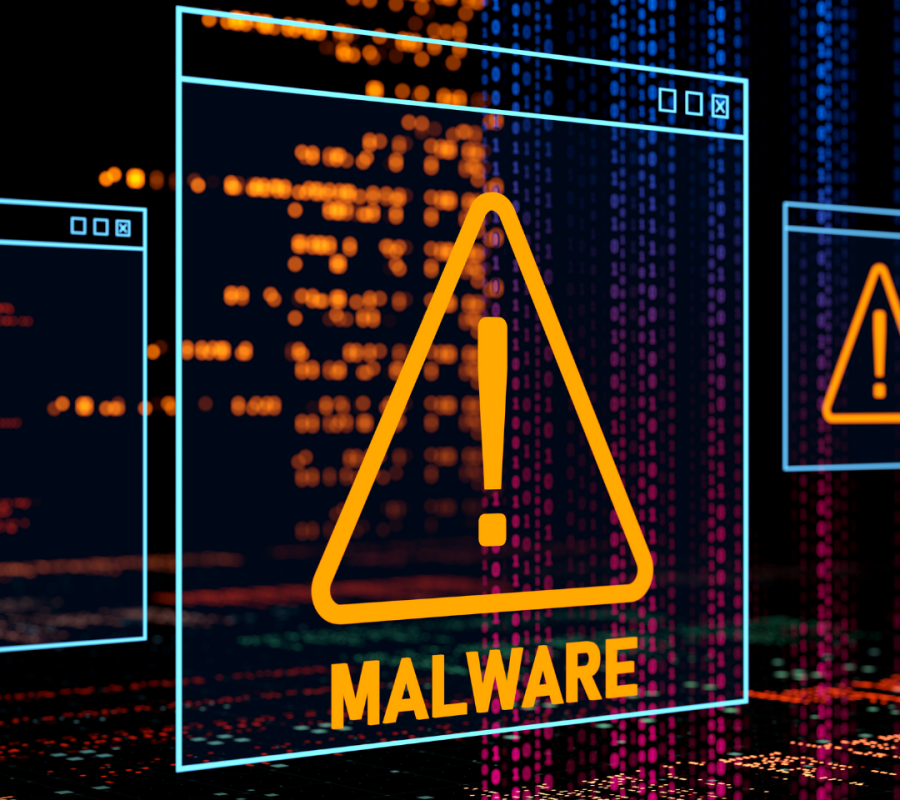5 Steps to Implement Vulnerability Management into your Business
Discover how you can implement vulnerability management into your business with our useful guide.
To understand how cyber security can aid a recruitment agency, it is crucial to comprehend its definition. Cyber security is a proactive approach to safeguarding your digital devices, networks, and confidential data from unauthorised access, theft, and harm. This necessitates the implementation of various strategies and multi-layered solutions, such as firewalls, encryption, and virus detection systems, to prevent cyber-attacks and data breaches. These measures are critical to ensuring that your recruitment agency's sensitive information remains secure and confidential and that your clients' and candidates' data is protected from cyber threats, such as hackers, malware, and phishing attacks. To learn more about cyber security, click here.
There are many reasons why a recruitment agency would require effective cyber security ranging from data protection to general business operations:
Recruitment agencies deal with an immense amount of data daily, including sensitive information such as race, dates of birth, addresses, and disabilities. These data points are considered highly confidential and protected by law from being exposed. However, cyber criminals are increasingly targeting organisations' online infrastructure to obtain sensitive data. With access to such information, cyber criminals have a wide range of options to make money, which is a growing concern for recruitment agencies and their clients alike.
When hackers gain access to sensitive data from your online systems, it can spell disaster for your business. The information they acquire can be sold on the dark web, an online black market. In addition, the hackers can use the stolen data as ransomware, demanding a fee for the safe return of the information. If you refuse to pay, they may release the data, which can result in severe penalties from the Information Commissioner Office (ICO). Moreover, your business reputation can take a serious hit and cause a loss of customer trust, all of which can have long-term negative consequences.
In today's digital age, businesses are increasingly vulnerable to cyber threats such as hacking, malware, and phishing attacks. These can not only result in financial losses and reputational damage but also put confidential customer and company data at risk. To prevent such cyber attacks, it is essential to have robust cyber security measures in place. Cyber security involves implementing various IT solutions and protocols to safeguard your business data against malicious attacks. These measures can help you protect sensitive information not only from cyber criminals but also from fines required from regulatory bodies such as the ICO, which are responsible for enforcing data protection laws. By investing in cyber security, businesses can reduce their risk of cyber attacks and ensure the safety of their data, customers, and reputation.
In the wake of the COVID-19 pandemic, remote work has become increasingly popular in the recruitment sector, with many employees opting for a hybrid work environment. While remote work offers several benefits, such as reduced overhead costs, improved staff satisfaction, and increased efficiencies, it also presents a higher risk of cyber attacks. With limited face-to-face interaction, employees are reliant on digital communication tools like emails and software like Microsoft Teams. This increase in digital communication creates a perfect opportunity for cybercriminals to exploit vulnerabilities and gain access to an organisation's IT infrastructure through employees' endpoints (laptops, PCs, etc) with a method called phishing.
A phishing attack will most commonly appear in the form of a fraudulent email. This attack will be crafted with the intent for employees to unknowingly input their details onto a fake website that the cyber criminal can then use to breach your IT infrastructure. By breaching your system, the hacker can then begin to infect the user's endpoint and if done correctly, the hacker will likely gain access to the wider IT network such as other employee's endpoints. This can result in exposing sensitive data (as earlier discussed), substantial financial loss, operational disruptions, and damaged reputation to name some potential outcomes.
Conducting simulated phishing attempts and using the results to create customised training programs for your employees is one way to protect your business against cyber threats. This proactive approach educates your staff on the latest phishing techniques and how to recognise, avoid, and report them, which ultimately helps safeguard your business. Since the frequency of phishing attempts is on the rise, your organisation will likely become a target. By providing your employees with realistic simulations of phishing attempts, you can help them learn to differentiate between genuine and fraudulent emails, enabling them to take appropriate action when faced with a real phishing attempt. This approach allows you to track the outcomes of the mock attacks and then provide tailored training to employees who are at risk or likely to be at risk.
ITRM specialises in providing comprehensive IT security solutions to the recruitment sector as a professional Managed Service Provider (MSP). Partnering with an MSP such as ITRM can grant you access to a broad range of IT services, which can help you alleviate the stress and challenges that come with navigating IT infrastructure. This partnership can save you both time and money. With ITRM's industry-qualified expertise available at your fingertips, you can trust that your cyber security needs are in capable hands.
Take the next step in enhancing your organisation's security capabilities with ITRM. Our dedicated team is always on hand to discuss your requirements and offer tailored solutions to meet your specific needs.

Discover how you can implement vulnerability management into your business with our useful guide.

In this blog, explore the current cyber threat landscape, why charitable organisations are at risk and how to protect your charity/not-for-profit so you can continue your mission...
By clicking “Accept all cookies”, you agree ITRM can store cookies on your device and disclose information in accordance with our Cookie Policy.
When you visit any of our websites, it may store or retrieve information on your browser, mostly in the form of cookies. This information might be about you, your preferences or your device and is mostly used to make the site work as you expect it to. The information does not usually directly identify you, but it can give you a more personalized web experience. Because we respect your right to privacy, you can choose not to allow some types of cookies. Click on the different category headings to find out more and manage your preferences. Please note, blocking some types of cookies may impact your experience of the site and the services we are able to offer.